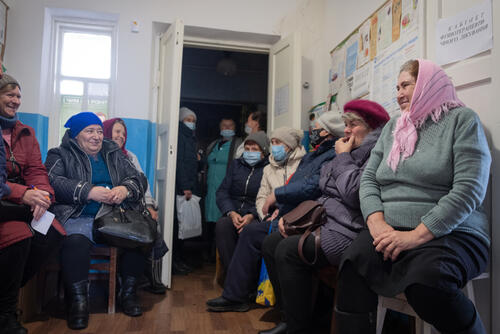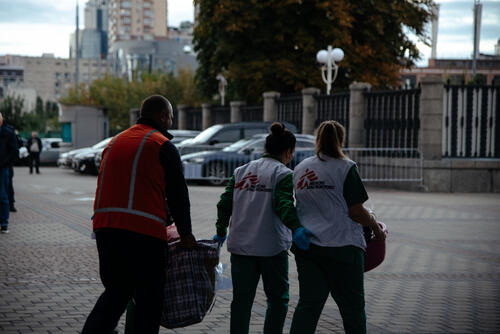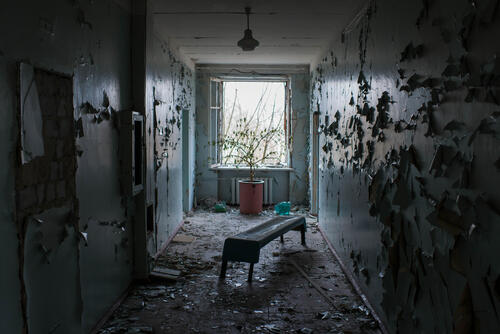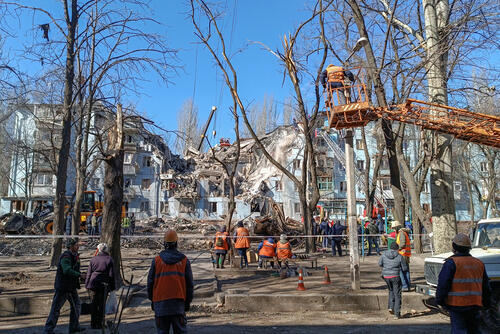As the Russian army took control of towns and villages across Ukraine’s Kharkiv region in late February 2022, those unable or unwilling to leave their homes were mostly the elderly and people with disabilities. Caught up in the middle of the fighting, they coped by turning cellars into shelters and sharing scraps of food with neighbours, while enduring the near-continuous bombings.
Now, three months after the Ukrainian army retook control of these areas, people’s medical and mental health needs are still high. Many communities have been left with damaged health facilities, while many residents have been left with psychological wounds caused by months of fear, loss, isolation and proximity to violence. Médecins Sans Frontières (MSF) mobile clinic teams are working in the area to provide people with general medical care and mental health support.
Uncontrolled chronic diseases
Most patients at MSF’s mobile clinic are babushkas – older women and grandmothers – many living with disabilities, such as limited mobility and loss of hearing or sight. Some of these medical conditions are the result of age, others of untreated chronic illnesses, such as hypertension and diabetes.
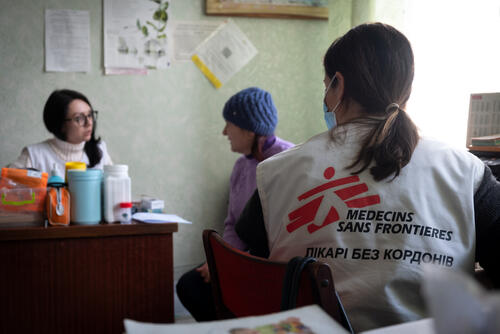
“We are seeing very high levels of blood pressure, such as 200 over 100, compared to a regular blood pressure reading of 120 over 80,” says MSF medical team leader Dr Gino Manciati. “In another context, these patients would be hospitalised. Here it’s just not possible.”
Untreated hypertension can lead to serious complications, including sight loss, kidney failure, neurological impairment and even sudden death. The lack of doctors, nurses and medicines, on top of all the stresses of living through war, have seen many patients’ medical conditions spiral out of control.
“Sadly, we have seen patients with end of organ complications, such as kidney failure,” says Dr Manciati.
In this region, the war has prevented many people with diabetes from getting hold of medications, while food shortages have prevented them from controlling their diet, leading to problems with mobility, eyesight, and muscle function, and increasing their dependence on others.
The lack of doctors, nurses and medicines, on top of all the stresses of living through war, have seen many patients’ medical conditions spiral out of control.Dr Gino Manciati, MSF medical team leader
One person who has suffered from these gaps in treatment and medicine is Maria, who developed walking difficulties after her diabetes went untreated for months.
“We came here [to the clinic] because of the babushka,” says Maria’s daughter Tonya. “She is shaking and has a headache. We’ve had no medication for her diabetes [for months].”
Tonya’s husband, who suffers from paralysis, is back at their home. Like many others with severe disabilities, Tonya’s husband finds it difficult to leave the house and so cannot access healthcare at all.
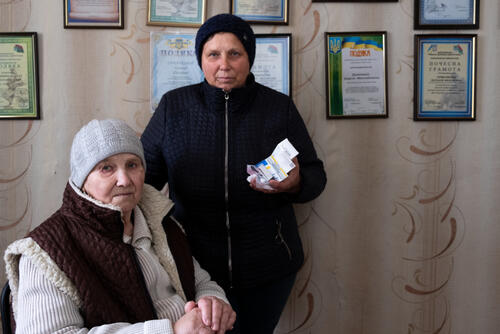
Support to heal psychological wounds
“When the war arrived on the morning of 24 February, I was sitting close to my window,” says 68-year-old Raisa, who has stayed in her home village of Yakovenkove since February. “I heard loud explosions and saw a cloud of dust in the sky. Rows of tanks began to move forward. We tried to get used to the situation, but it was impossible to get used to this amount of shelling. Shooting all night and all day. It was terrible.”
Raisa is receiving mental health support from MSF psychologists. They provide patients with tools to control their stress, which can help to normalise blood pressure, and with coping mechanisms for anxiety, acute stress reactions, and panic attacks.
“I came to see the psychologist because I still can’t sleep,” says Raisa. “In the darkness of night, rockets are flying over the buildings. It’s very scary. It’s destroying my nervous system.”
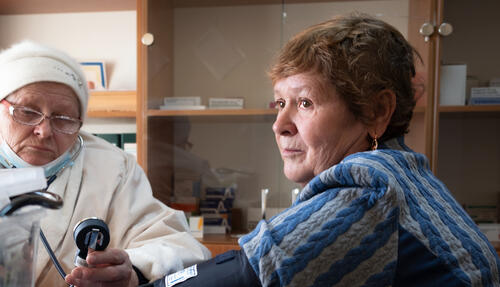
Although most people recover on their own from nightmares and flashbacks, mental health support can speed up their recovery. When mental healthcare alone is not enough, our team of doctors and psychologists work together to find the best way to support patients.
“I am sleeping very badly, I am exhausted,” says 70-year-old Valentyna, from Vasylenkova, whose son Roma was killed by a landmine. “I wake up horrified and see him in front of me.”
Valentyna receives general healthcare to help with her sleeping problems and our team of psychologists provide her with mental health support.
“This war took my health and my son,” she says. “I am crying and screaming. Now he is gone and my life is over.”
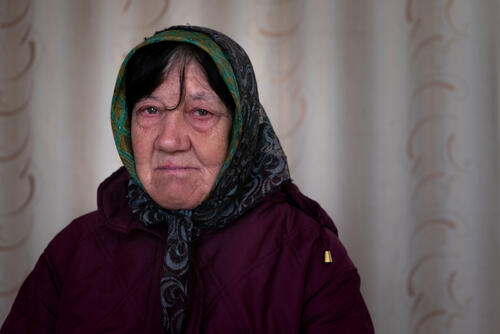
Many of the older women who come to MSF’s clinics feel isolated, abandoned, and lonely.
“For these older women, the feeling of having lost their purpose in life causes anxiety, and the feeling of having to rebuild a new purpose for the last years of their lives causes hopelessness,” says MSF mental health activity manager Camilo Garcia. “We hear elderly women tell us that they feel like the last years of their lives have been stolen from them.”
“The babushkas of Ukraine have a hidden power: resilience,” says Garcia. “They decided to stay in their villages despite the fighting and despite the bombs. They have defended their right to stay where they belong, which takes courage.”



